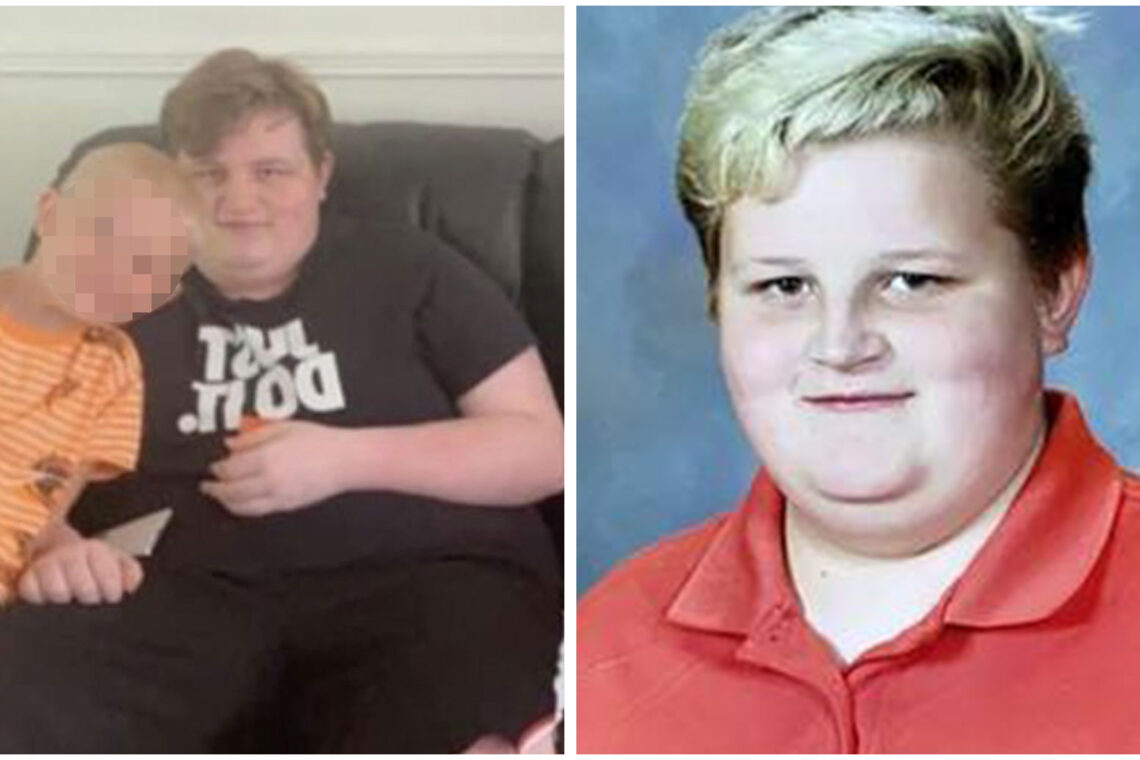
Drake Geiger was a 16-year-old student at an Omaha high school, eagerly participating in football practice one August afternoon when tragedy struck. Just ten minutes into the session, he suddenly collapsed, leaving coaches and teammates in shock. The swift response of emergency services was initiated, and Drake was rushed to the hospital, where medical personnel began resuscitation efforts.
Despite their best efforts, the young athlete could not be saved. This devastating news reached his parents just an hour after they had said their goodbyes, having dropped him off for practice with hopes of a typical day of training. His father, Scott Hoffman, expressed profound sorrow, reflecting on the life that lay ahead for his son. “He didn’t deserve this. He had his whole life ahead of him. I just wish this didn’t happen,” he shared, articulating the pain of losing a child.
On that fateful Tuesday, Scott had left Drake with some encouraging words, urging him to “be tough, kid.” Little did he know that these would be the last words he would say to his son before receiving the shocking call from the coach. The coach explained the sequence of events: after a brief drill, Drake went for a drink, returned to his spot, and suddenly fell over. The coach promptly informed Scott that emergency medical technicians were on-site and that they were taking Drake to the University of Nebraska Medical Center.
Upon arrival at the hospital, Scott learned from the doctors that his son was suffering from severe overheating. “They told us he was extremely overheated, and he was very, very sick,” Scott recounted. Medical teams worked tirelessly, performing compressions on Drake for hours in an attempt to revive him, but their efforts ultimately proved futile.
Drake was a healthy teenager, standing at 6 feet 3 inches tall, and had recently undergone a physical examination. Scott was reassured by the fact that his son had always taken good care of himself. The doctors eventually concluded that Drake had succumbed to heat stroke, an unfortunate outcome exacerbated by the oppressive heat, which had reached a dangerous index of approximately 106 degrees during practice.
TRAGIC NEWS: this is 16-year-old Drake Geiger. His sister tells me he collapsed during football practice at Omaha South Tuesday. Drake tragically died yesterday. Thinking of his family and his friends. pic.twitter.com/73Bj7GagBZ
— Jennifer Griswold (@Jen_Griswold) August 11, 2021
Scott described his son as a shy but enthusiastic young man who cherished the camaraderie of being part of a team. “He just loved the camaraderie,” he reflected. For Drake, it wasn’t just about playing; it was about the friendships and bonds formed with his teammates that mattered most to him. He was also excited about reaching milestones such as obtaining his driver’s license and reuniting with friends as school was set to start again.
Tragically, Drake’s sister Brittany took to social media to announce the heartbreaking news. She wrote about the failed efforts to revive him at the Nebraska Medical Center, sharing the family’s grief: “With great sadness, they were not able to save him.” This message resonated deeply with many, highlighting the profound loss experienced by the family.
In the wake of Drake’s passing, Omaha Public Schools extended their condolences to the family and the broader school community. A letter was sent out to students and parents expressing heartfelt sympathy and support during this unimaginably difficult time. The school community was encouraged to keep Drake’s family in their thoughts, emphasizing the collective sorrow that had enveloped everyone who knew him.
As details surrounding the circumstances of Drake’s death began to surface, the community was left grappling with the tragic loss. An autopsy was anticipated to provide clarity on whether the extreme heat contributed to the incident, but the emotional impact was already deeply felt among friends, family, and teammates.
The family is mourning the loss of a young man they say loved his school and football team. @ZWilliamsonTV3 https://t.co/GdoTxFpivO
— KMTV 3 News Now (@3NewsNowOmaha) August 12, 2021
The passing of a young athlete like Drake serves as a stark reminder of the potential dangers associated with heat exposure during physical activity, particularly in the sweltering summer months. This incident underscores the importance of awareness and preventative measures to ensure the safety of young athletes. As temperatures continue to rise during the summer, it is crucial for coaches, parents, and students to recognize the risks associated with heat-related illnesses.
Physical activity is an essential part of youth development, promoting health, teamwork, and discipline. However, safety must always remain a priority. Coaches and trainers should implement protocols that include regular hydration breaks, education on recognizing the signs of heat exhaustion, and appropriate adjustments to practice schedules during periods of extreme heat. Parents, too, play a vital role by ensuring their children are well-prepared for the physical demands of sports, including proper hydration and acclimatization to heat.
Drake’s story serves as a poignant reminder of the fragility of life and the unexpected nature of tragedy. It is a call to action for communities to come together, support one another, and take proactive steps to safeguard the health and well-being of young athletes. While the pain of loss is profound, the hope is that lessons learned from this heartbreaking event can lead to increased awareness and preventive measures, helping to avoid similar tragedies in the future.
As we reflect on Drake’s life and the love he shared with his friends and family, it is essential to cherish each moment and advocate for the safety of all young athletes. This commitment not only honors Drake’s memory but also serves to protect the vibrant lives of countless others who dream of participating in sports and enjoying the camaraderie they bring.